第86章 CONSCIOUSNESS AND ATTENTION(7)
First, the new content forces itself on the attention suddenly and without preparatory affective influences; this we call passage apperception. While the content of consciousness is becoming clearer both in its ideational and affective elements, there is first of all a concomitant feeling of passive receptivity, which is a depressing feeling, and generally stronger the more intense the psychical processes, and the more rapid its rise. This feeling soon sinks and then gives place to an antagonistic, exciting feeling of activity. There are connected with both these feelings characteristic sensations in the muscles of the sense-organ from which the ideational components of the process proceed. The feeling of receptivity is generally accompanied by a transient sensation Of relaxation, that of activity by a succeeding sensation of strain.
Secondly, the new content is preceded by the preparatory [p. 218] affective influences mentioned above (7), and as a result the attention is concentrated upon it even before it arrives; this we call active apperception. In such a case the apperception of the content is preceded by a feeling of expectation, sometimes of longer, sometimes of shorter duration. This feeling is generally one of strain and may at the same time be one of excitement; it may also have pleasurable or unpleasurable factors, according to its ideational elements.
This feeling of expectation is usually accompanied by fairly intense sensations of tension in the muscles of the sense-organ affected. At the moment in which the content arises in clear consciousness, this feeling gives place to a feeling of fulfillment which is generally very short and always has the character of a feeling of relief. Under circumstances it may also be depressing or exciting, pleasurable or unpleasurable. After this feeling of fulfillment we have at once that of activity -- the same that appeared at the close of passive apperception, and is here, too, united with an increase in feelings of strain.
8a. The experimental observation of the different forms of apperception can be carried out best with the aid of the reaction-experiments described in § 14, 11 sq. Passive apperception may be studied by the use of unexpected, and active by the use of expected impressions. At the same time it will be observed that between these typical differences there are intermediate stages. Either the passive form will approach the active because of the weakness of the first stage, or the active will approach the passive form because in the sudden relaxation of the expectation the contrast between the expectation and the relief and depression which come in the succeeding feeling of fulfillment, is more marked than usual. In reality we have everywhere continuously interconnected processes which are opposite character only in extreme cases.
9. If the affective side of these processes of attention axe more closely examined, it is obvious that they are exactly the same as the affective content of all volitional processes. [p.
219]
At the same time it is clear that in its essential character passive apperception corresponds to a simple impulsive act, while the active form corresponds to a complex voluntary act. In the first case we may evidently regard the psychical content that forces itself upon attention without preparation, as the single motive which, without any conflict with other motives, gives rise to the act of apperception.
The act is here too connected with the feeling of activity characteristic of all volitional acts. In the case of active apperception, on the other hand, other psychical contents with their affective elements tend to force themselves upon the attention during the preparatory affective stages, so that the act of apperception when it finally is performed is often recognized as a voluntary process or even as a selective process when the conflict between different contents comes clearly into consciousness. The existence of such selective acts under the circumstances mentioned was recognized even in older psychology where "voluntary attention" was spoken of. But here too, as in the case of external volitional acts, will stood alone; there was no explanation of it by its antecedents, for the central point in the development, namely, the fact that so-called involuntary attention is only a simpler form of internal volition, was entirely overlooked. Then, too, in full accord with the methods of the old faculty-theory "attention" and "will" were regarded as different, sometimes as related, sometimes as mutually excluding psychical forces, while the truth evidently is that these two concepts refer to the same class of psychical processes. The only difference is that processes of apperception and attention are those which occur only as so-called internal acts, that is, have no external effects except indirectly when they lead to other processes.
10. Connected with these internal volitional acts, which we call processes of attention, there takes place a formation [p. 220] of certain concepts of the highest importance for all psychical, development. This is the formation of the concept subject and the correlate presupposition of objects as independent realities standing over against the subject. This can be carried out in its logical form only with the aid of scientific reflection, still it has its substratum in the processes of attention.
Even in immediate experience there is a division between components of this experience. On the one hand are those which are arranged in space with relation to the point of orientation mentioned above (p. 131), and are called either objects, that is, something outside the perceiving subject, or, when we attend to the mode of their rise in consciousness, ideas, that is something which the subject perceives.